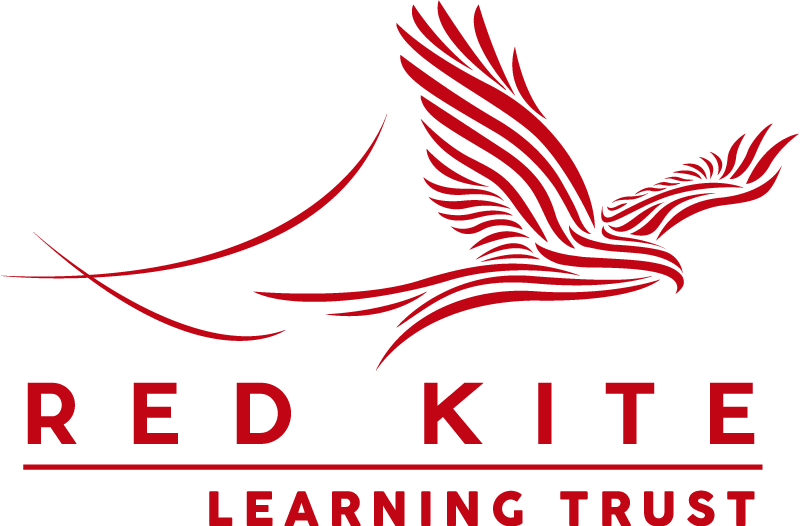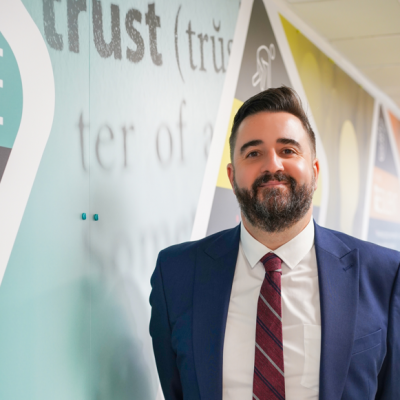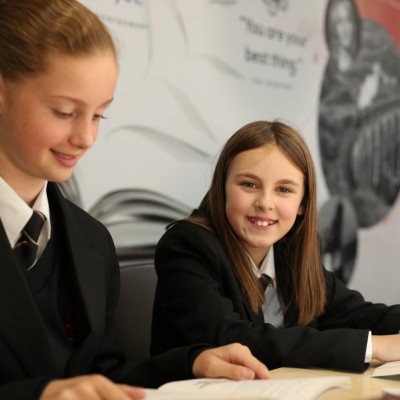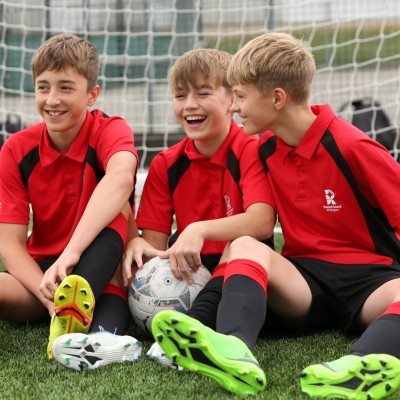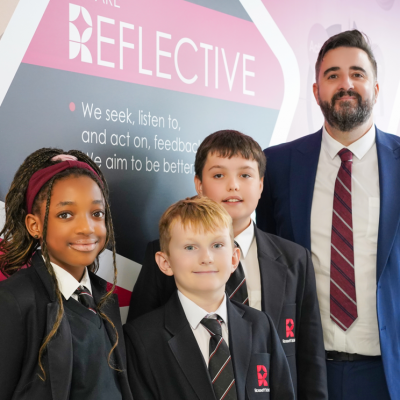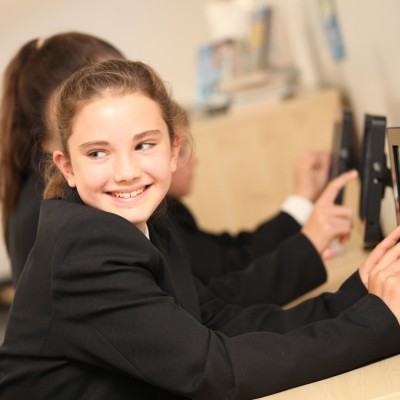Relationships & Sex Education Policy
1. Aims
Our ethos is ‘success for everyone’. This includes students being able to form and maintain healthy relationships and good sexual health.
The aims of relationships and sex education (RSE) at our school are to:
- Provide a framework in which sensitive discussions can take place;
- Prepare students for puberty, and give them an understanding of sexual development and the importance of health, hygiene, personal safety and the law;
- Help students develop feelings of self-respect, confidence and empathy;
- Create a positive culture around issues of sexuality, gender identity and relationships;
- Teach students the correct vocabulary to describe themselves and their bodies.
2. Statutory requirements
As a secondary academy school we must provide RSE to all students as per section 34 of the Children and Social work act 2017. In teaching RSE, we are required by our funding agreements to have regard to guidance issued by the secretary of state as outlined in section 403 of the Education Act 1996. At Rossett School we teach RSE as set out in this policy.
3. Policy development
This policy has been developed in consultation with staff, students and parents. The consultation and policy development process involved the following steps:
- Review – a member of the Senior Leadership Team collated all pertinent information including relevant national and local guidance;
- Student consultation – we investigated exactly what students wanted from their RSE lessons using focus groups across KS3 and KS4;
- Staff consultation – all school staff were given the opportunity to look at the policy and make recommendations about the content and the timing of the delivery;
- Parent/stakeholder consultation – all parents were consulted through a survey and given the opportunity to look at the policy and share their views about the content and the timing of the delivery;
- Ratification – once amendments were made, the policy was shared with governors and ratified.
4. Definition
RSE is about the emotional, social and cultural development of students, and involves learning about relationships, sexual health, sexuality, healthy lifestyles, diversity and personal identity.
RSE involves a combination of sharing information and exploring issues and values.
RSE is not about the promotion of sexual activity.
5. Curriculum
Our curriculum is set out as per Appendix 1, but we may need to adapt it as and when necessary.
The content for RSE is set out by the Department for Education issued under Section 80A of the Education Act 2002 and section 403 of the Education Act 1996. When the content is taught is the decision of the school. We have developed the curriculum in consultation with parents, students and staff, considering the age, needs and feelings of students. We have also considered our local context, national trends and lessons learned from safeguarding matters that have arisen in our school and in other schools. The curriculum map aims to deliver the content in an order which prevents educating students on sexual issues too early or too late. An example of this is the teaching of ‘consent’. Through our discussions with students, they felt that learning about consent in Year 10 was too late and they felt they should know about aspects of it in Year 9, to then study in detail later. Not all students stay for Sixth Form and therefore must be taught all the statutory content by the end of Year 11. At Key Stage 5 (Sixth Form), students explore some aspects of RSE in more detail and the lessons follow more of a scenario-based approach. We also ensure that students coming from other secondary schools are spoken to about their experience of RSE and we support them in covering topics or issues that they might not have done in their previous school.
If students ask questions outside the scope of this policy, teachers will respond in an appropriate manner, so they are fully informed and don’t seek answers online. If a teacher does not know the answer, they will be honest with the students and seek to find the answer and revisit the question later.
6. Delivery of RSE
RSE is taught within the personal, social, health and economic (PSHE) education curriculum. Biological aspects of RSE are taught within the science curriculum, and other aspects are included in Religion, Ethics and Philosophy (REP). Year 11 will be taught during a number of off timetable days, instead of a weekly PSHE session.
RSE focuses on giving young people the information they need to help them develop healthy, nurturing relationships of all kinds including:
- Families;
- Respectful relationships, including friendships;
- Online;
- Intimate and sexual relationships, including sexual health;
- For more information about our RSE curriculum, see Appendix 1.
These areas of learning are taught within the context of family life taking care to ensure that there is no stigmatisation of children based on their home circumstances (families can include single parent families, LGBTQ+ parents, families headed by grandparents, adoptive parents, foster parents/carers amongst other structures) along with reflecting sensitively that some children may have a different structure of support around them (for example: looked after children or young carers).
7. Roles and responsibilities
7.1 The Governing Board
The Governing Board will approve the RSE Policy and hold the Headteacher to account for its implementation.
7.2 The Headteacher
The Headteacher is responsible for ensuring that RSE is taught consistently across the school, and for managing requests to withdraw students from non-statutory/non-science components of RSE (see section 10).
7.3 Staff
Staff are responsible for:
- Delivering RSE in a sensitive way;
- Modelling positive attitudes to RSE;
- Ensuring they remain objective and present the facts;
- Ensuring they do not give prominence to certain sexual orientations or beliefs;
- Monitoring progress and understanding;
- Responding to the needs of individual students especially those with SEND*;
- Responding appropriately to students whose parents wish them to be withdrawn from non-statutory/non-science components of RSE;
- Report any safeguarding concerns that arise from discussions with students and parents/carers to the DSL using CPOMs.
Staff who have concerns about teaching RSE are encouraged to discuss this with the Headteacher.
The key members of staff responsible for delivering RSE include: the PSHE team, science teachers, REP teachers, the school nurse and approved external providers.
7.4 Students
Students are expected to engage fully in RSE and, when discussing issues related to RSE, treat others with respect and sensitivity. Where students use stereotypes or hold problematic views, they will be challenged in a calm, non-judgmental way. Students will be reminded of the ‘RSE Code of Conduct’ (see section 8.) at the start of all RSE lessons.
- Creating a safe environment for RSE
Many of the topics covered in the RSE curriculum are sensitive and the school understands that students will respond in different ways to discussions around issues such as pregnancy, sexual violence, STIs and abusive relationships. As a result, there are is an ‘RSE Code of Conduct’ which is shared with all students and staff. The code states:
- No member of staff or student will be asked a personal question;
- Staff and students will always display respectful and tolerant attitudes;
- Discussion is a regular expectation of RSE lessons, however, students may not want to verbally contribute in all aspects of the curriculum, and this will be respected by the teacher;
- Meanings of words will be explained in a sensible and objective way;
- Slang terms may be explored as part of students developing a wider understanding but will subsequently not be used for parts of the body, types of sexual activity or STIs.
*The school will ensure that it stays up to date with the most recent CPD regarding the teaching of RSE to students with SEND and ensure their individual needs are met in the teaching of this curriculum.
- Safeguarding
All staff in the school have annual safeguarding training, in line with the most recent version of ‘Keeping Children Safe in Education’. This includes training on how to identify signs of sexual exploitation, sexual harassment and when children are in abusive relationships. During discussions in RSE, the teacher may be concerned about the contribution of students, if for example, they ask questions or share knowledge which seem inappropriate for the age of the student or share personal experiences which raise concerns about the safety and welfare of the student or other young people. In all cases, the teacher will:
- Treat the student with respect;
- Acknowledge their contribution, but agree it will be discussed later, on an individual level (to prevent the rest of the class having to listen to it);
- Inform the Designated Safeguarding Lead (DSL) without delay by logging the incident on CPOMs in as much detail as possible
Upon receipt of this information, the Designated Safeguarding Lead will refer to the AIM checklist to judge whether the comment/question is typical of a student that age, problematic or harmful. The DSL will then decide if a referral to the screening team is needed and, in all cases, follow up with the student, parent and teacher to provide further support.
10. Parents’ right to withdraw
Parents have the right to withdraw their children from the non-statutory/non-science components of sex education within RSE up to and until three terms before the child turns 16. After this point, if the child wishes to receive sex education rather than being withdrawn, the school will arrange this.
Requests for withdrawal should be put in writing using the form found in Appendix 3 of this policy and addressed to the Headteacher.
A copy of withdrawal requests will be placed in the student’s educational record. The Headteacher will discuss the request with parents/carers and take appropriate action.
Alternative work will be given to students who are withdrawn from sex education.
11. Training
Staff are trained on the delivery of RSE as part of their induction and it is included in our continuing professional development calendar.
The Headteacher will also attempt to invite visitors from outside the school, such as school nurses or sexual health professionals, to provide support and training to staff teaching RSE.
12. Monitoring arrangements
The delivery of RSE is monitored by the Senior Leadership Team through the school’s quality assurance processes.
Students’ development in RSE is monitored by class teachers as part of our internal assessment systems. Their engagement will be reported to parents/carers, through their SPM reports.
This policy will be reviewed by the Senior Leadership Team, annually. At every review, the policy will be approved by the Governing Board.
Appendix 1: Rossett School – Relationships & Sex Education Curriculum Overview 2021
|
In… |
Students will learn: |
|
Year 7 |
7.1 That there are different types of committed, stable relationships. |
|
7.2 How to: determine whether other children, adults or sources of information are trustworthy: judge when a family, friend, or other relationship is unsafe (and to recognise this in others’ relationships); and, how to seek help or advice, including reporting concerns about others, if needed. |
|
|
7.3 The characteristics of positive and healthy friendships (in all contexts, including online) including: trust, respect, honesty, kindness, generosity, boundaries, privacy, and the management of conflict reconciliation. This includes different (non-sexual) types of relationship. |
|
|
7.4 Practical steps they can take in a range of different contexts to improve or support respectful relationships. |
|
|
7.5 About different types of bullying (including cyberbullying, SEND, racism, gender and LGBTQ+), the impact of bullying, responsibilities of bystanders to report bullying and how and where to get help. |
|
|
7.6 Their rights, responsibilities and opportunities online, including that the same expectations of behaviour apply in all contexts, including online. |
|
|
7.7 What to do and where to get support to report material or manage issues online and the impact of viewing harmful content. |
|
|
7.8 That in school and in wider society they can expect to be treated with respect by others, and that in turn they should show due respect to others, including people in positions of authority and due tolerance of other people’s beliefs. |
|
|
7.9 To develop an understanding of LGBTQ+. |
|
|
7.10 To develop an understanding of gender identity. |
|
|
Year 8
|
8.1 How stereotypes, in particular stereotypes based on sex, gender, race, religion, sexual orientation or disability, can cause damage (e.g. how they might normalise non-consensual behaviour or encourage prejudice). |
|
8.2 The legal rights and responsibilities regarding equality (particularly with reference to the protected characteristics as defined in the Equality Act 2010) and that everyone is unique and equal. |
|
|
8.3 About online risks, including that any material someone provides to another has the potential to be shared online and the difficulty of removing potentially compromising material placed online. |
|
|
8.4 That sharing and viewing indecent images of children (including those created by children) is a criminal offence which carries severe penalties including jail. |
|
|
8.5 How information and data is generated, collected, shared and used online. |
|
|
Year 9 |
9.1 That there are a range of strategies for identifying and managing sexual pressure, including understanding peer pressure, resisting pressure and not pressurising others. |
|
9.2 That specifically sexually explicit material e.g. pornography presents a distorted picture of sexual behaviours, can damage the way people see themselves in relation to others and negatively affect how they behave towards sexual partners. |
|
|
9.3 How the different sexually transmitted infections (STIs), including HIV/AIDs, are transmitted, how risk can be reduced through safer sex (including through condom use) and the importance of and facts about testing. |
|
|
9.4 About the prevalence of some STIs, the impact they can have on those who contract them and key facts about treatment. |
|
|
9.5 How to recognise the characteristics and positive aspects of healthy one-to-one intimate relationships, which include mutual respect, consent, loyalty, trust, shared interests and outlook, sex and friendship. |
|
|
9.6 The concepts of, and laws relating to, sexual consent, sexual exploitation, abuse, grooming, coercion, harassment and how these can affect current and future relationships. |
|
|
9.7 How people can actively communicate and recognise consent from others, including sexual consent, and how and when consent can be withdrawn (in all contexts, including online). |
|
|
Year 10 |
10.3 That all aspects of health can be affected by choices they make in sex and relationships, positively or negatively, e.g. physical, emotional, mental, sexual and reproductive health and wellbeing. |
|
10.4 How to get further advice, including how and where to access confidential sexual and reproductive health advice and treatment. |
|
|
10.5 That some types of behaviour within relationships are criminal, including violent behaviour and coercive control. |
|
|
10.6 That they have a choice to delay sex or to enjoy intimacy without sex. |
|
|
10.7 What constitutes sexual harassment and sexual violence and why these are always unacceptable. |
|
|
10.8 The concepts of, and laws relating to rape, domestic abuse, forced marriage, honour-based violence, FGM, and how these can affect current and future relationships. |
|
|
10.9 How relationships might contribute to human happiness and their importance for bringing up children. |
|
|
Year 11 |
11.1 What marriage is, including their legal status e.g. that marriage carries legal rights and protections not available to couples who are cohabiting or who have married, for example, in an unregistered religious ceremony |
|
11.2 Why marriage is an important relationship choice for many couples and why it must be freely entered in to. How to recognise an unhealthy marriage and that options are available to people who are in an abusive or unhappy marriage. |
|
|
11.3 The characteristics and legal status of other types of long-term relationships. |
|
|
11.4 The roles and responsibilities of parents with respect to raising of children, including the characteristics of successful parenting. |
|
|
11.5 The facts about reproductive health, including fertility and the potential impact of lifestyle on fertility for men and women. |
|
|
11.6 The facts around pregnancy including miscarriage. |
|
|
11.7 That there are choices in relation to pregnancy (with medically and legally accurate, impartial information on all options, including keeping the baby, adoption, abortion, surrogacy, IVF, donors and where to get further help). |
Appendix 2: Department for Education – FAQs about RSE
The Department for Education is introducing compulsory Relationships Education for primary students and Relationships and Sex Education (RSE) for secondary students from September 2020. Also, from September 2020 it will be compulsory for all schools to teach Health Education.
Through these subjects, we want to support all young people to be happy, healthy and safe – we want to equip them for adult life and to make a positive contribution to society. Throughout our engagement process as we developed this curriculum, we have heard a number of wide-ranging concerns.
Below, we have explained some of the common misconceptions around the subjects.
Q: Will my child’s school still have to teach these subjects from September despite the recent disruption?
A: The subjects will be compulsory from September 2020. Schools that have met the requirements set out in the statutory guidance, for example engaging parents and carers, are encouraged to begin teaching the new curriculum from September 2020. Schools that are not ready to teach the subjects or are unable to meet the requirements because of the challenging circumstances, should aim to start preparations as soon as possible and begin teaching the new curriculum by at least the start of the summer term 2021.
Q: Will my child’s school have to engage with me before teaching these subjects?
A: Schools will be required to consult with parents when developing and reviewing their policies for Relationships Education and RSE, which will inform schools’ decisions on when and how certain content is covered. Effective engagement gives the space and time for parents to input, ask questions, share concerns and for the school to decide the way forward. Schools will listen to parents’ views, and then make a reasonable decision as to how they wish to proceed. When and how content is taught is ultimately a decision for the school, and consultation does not provide a parental veto on curriculum content.
A school’s policies for these subjects must be published online, and must be available to any individual free of charge. Schools should also ensure that, when they engage parents, they provide examples of the resources they plan to use, for example the books they will use in lessons.
Q: Does the new Relationships Education and RSE curriculum take account of my faith?
A: The subjects are designed to help children from all backgrounds build positive and safe relationships, and to thrive in modern Britain.
In all schools, when teaching these subjects, the religious background of students must be considered when planning teaching, so that topics are appropriately handled. Schools with a religious character can build on the core required content by reflecting their beliefs in their teaching.
In developing these subjects, we have worked with a number of representative bodies and faith organisations, representing all the major faith groups in England. Several faith organisations produce teaching materials that schools can choose to use.
Q: Do I have a right to withdraw my child from Relationships and Sex Education?
A: Parents will continue to have a right to request to withdraw their child from sex education delivered as part of RSE in secondary schools which, unless there are exceptional circumstances, should be granted up to three terms before their child turns 16. At this point, if the child themselves wishes to receive sex education rather than be withdrawn, the school should make arrangements for this to happen in one of the three terms before the child turns 16 - the legal age of sexual consent.
There is no right to withdraw from Relationships Education at primary or secondary as we believe the contents of these subjects – such as family, friendship, safety (including online safety) – are important for all children to be taught.
Q: Has the government listened to the views of my community in introducing these subjects?
A: A thorough engagement process, involving a public call for evidence and discussions with over 90 organisations, as well as the public consultation on the draft regulations and guidance, has informed the key decisions on these subjects. The consultation received over 11,000 responses from teachers, schools, expert organisations, young people and parents – these responses have helped finalise the statutory guidance.
Q: Will my child be taught about LGBT relationships?
A: Students should be taught about the society in which they are growing up. These subjects are designed to foster respect for others and for difference and educate students about healthy relationships.
Students should receive teaching on LGBT content during their school years. Teaching children about the society that we live in and the different types of loving, healthy relationships that exist can be done in a way that respects everyone. Primary schools are strongly encouraged and enabled to cover LGBT content when teaching about different types of families.
Secondary schools should cover LGBT content in their RSE teaching. RSE should meet the needs of all students, whatever their developing sexuality or identity – this should include age-appropriate teaching about different types of relationships in the context of the law.
Q: What support will schools receive to deliver these subjects well?
A: We are investing in a central support package to help teachers introduce these subjects well and with confidence. This will include a new online service, featuring access to high quality resources, innovative training materials, case studies and an implementation guide, available in due course.
There will also be training available for teachers through existing regional networks, offering opportunities to improve subject knowledge and build confidence.
We’re working with expert organisations, schools and teachers to develop this support.
Q: Where can I find out more information about what will be taught in my child’s school?
A: If you want to know more about what will be taught as part of the new subjects, the best thing to do is speak to your child’s school. We have also published parent guides, which explain what the subjects are, and parents’ rights.
These subjects are designed to equip your child with knowledge to make informed decisions about their wellbeing, health and relationships as well as preparing them for a successful adult life. The important lessons you teach your child about healthy relationships, looking after themselves and staying safe, are respected and valued under this new curriculum.
Teaching at school will complement and reinforce the lessons you teach your child as they grow up. Your child’s school will have flexibility to deliver the content in a way that is age and developmentally appropriate and sensitive to the needs and religious background of its students.
Appendix 3: Parent form: withdrawal from sex education within RSE
|
To be completed by parents |
|||
|
Name of child |
|
Class |
|
|
Name of parent |
|
Date |
|
|
Reason for withdrawing from sex education within relationships and sex education |
|||
|
|
|||
|
Any other information you would like the school to consider |
|||
|
|
|||
|
Parent signature |
|
||
|
Date |
|
||
|
To be completed by the school |
|
|
Agreed actions from discussion with parents |
Include notes from discussions with parents and agreed actions taken.
|
|
Signed: |
(Headteacher) |
|
Date: |
|
|
Approved by: |
Governing Body |
Date: 17th March 2021 |
|
Last reviewed on: |
17th March 2021 |
|
|
Next review due by: |
Spring Term 2022 |
|
